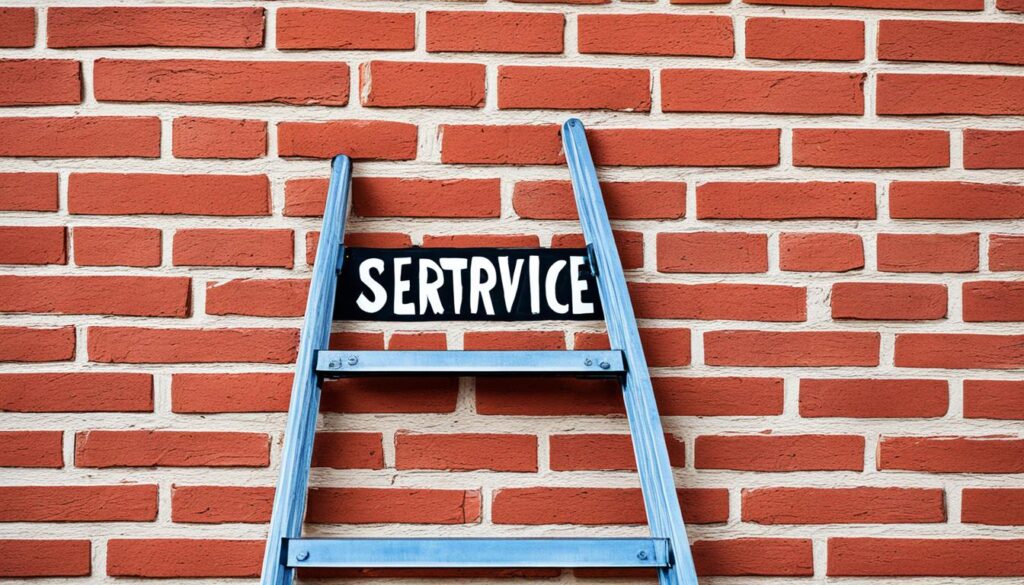Welcome to the world of ecommerce, where customer experience is the ultimate game-changer. In the fast-paced digital era, providing top-notch customer service is key to standing out from the competition and keeping your customers coming back for more. Whether it’s resolving their queries, offering personalized recommendations, or ensuring a seamless shopping journey, exceptional ecommerce customer service is the secret sauce to success.
So, why is customer service in the ecommerce realm so important? Well, imagine this: you walk into a physical store and are greeted with a smile, offered assistance, and given all the information you need to make an informed purchase. You’d feel valued, right? The same principle applies to online shopping. When customers receive exceptional service, they feel appreciated, and that’s when the magic happens – customer loyalty, positive reviews, and increased sales.
If you want to take your ecommerce customer service game to the next level, keep reading. In this article, we’ll explore the best practices and strategies that will help you enhance your online customer support, and ultimately, drive growth in your ecommerce business.
Key Takeaways:
- Exceptional ecommerce customer service is crucial for success in the highly competitive digital landscape.
- Providing top-notch customer service leads to increased customer satisfaction, loyalty, and positive word-of-mouth.
- Prioritizing customer experience helps reduce cart abandonment rates and attracts new customers.
- Strategies such as multichannel support, personalization, and quick response times are key to enhancing ecommerce customer service.
- Consistency and responsiveness are vital in maintaining customer trust and loyalty.
Why Ecommerce Customer Service Matters
Customer satisfaction is the backbone of any successful ecommerce business. In today’s digital era, where online shopping is on the rise, providing exceptional customer service can make all the difference between customers choosing your brand over competitors’.
When it comes to ecommerce, customers have high expectations. They want a seamless, personalized, and enjoyable shopping experience from start to finish. Investing in ecommerce customer service not only improves customer satisfaction but also fosters long-term loyalty.
Why does it matter?
Improving customer satisfaction through exceptional ecommerce customer service has a host of benefits. Satisfied customers are more likely to:
- Make repeat purchases
- Recommend your brand to others
- Stay loyal to your business
By going above and beyond to deliver outstanding customer service, you can create a positive brand reputation that attracts and retains customers.
Ecommerce customer service vs. traditional customer service
While traditional retail businesses interact face-to-face with customers, in ecommerce, customer service is predominantly conducted remotely. Online customer support requires businesses to be proactive and responsive to customer needs, offering efficient problem-solving and maintaining open lines of communication.
To put it simply, ecommerce customer service is the lifeline that connects businesses with their customers in the digital realm. By providing excellent support, ecommerce businesses can build trust, foster customer loyalty, and set themselves apart from the competition.
“Exceptional customer service is not only meeting customer expectations but exceeding them.”
To illustrate the importance of ecommerce customer service, consider the following scenario:

|
Customer A Scenario: Customer A had a negative experience with a different online store, where their issue was ignored and left unresolved for weeks. Feeling frustrated and undervalued, Customer A decides to try a new ecommerce store for their upcoming purchase. Your Business: Customer A contacts your customer support team with a query. Your team responds promptly, addressing their concerns and providing a satisfactory resolution. Impressed with the efficient and friendly support, Customer A not only completes their purchase but also becomes a loyal customer, advocating for your brand to friends and family. |
In the above scenario, your exceptional ecommerce customer service turned a dissatisfied customer into a devoted advocate. This highlights the pivotal role that customer service plays in enhancing customer satisfaction and nurturing long-term loyalty.
As an ecommerce business, it’s crucial to prioritize customer support. By addressing customer needs promptly, offering personalized assistance, and prioritizing open communication, you can create a positive and memorable shopping experience that keeps customers coming back for more.
Strategies for Enhancing Ecommerce Customer Service
To provide exceptional ecommerce customer service, businesses should implement a range of effective strategies. By adopting a multichannel support approach, customers can conveniently connect through their preferred communication channels, ensuring maximum accessibility and convenience.
But it’s not just about being available. It’s crucial to maintain a friendly tone during interactions, injecting a touch of personality and warmth into customer conversations. Remember, a little friendliness can go a long way in building rapport and making customers feel valued and appreciated.
Of course, speed matters too. In the fast-paced online shopping world, customers expect quick responses to their inquiries and issues. By promptly addressing customer needs, businesses can ensure customer satisfaction and exceed expectations.
Consistency is another key aspect of excellent customer service. Consistency in the tone, information, and support provided across all channels helps build trust and prevents customer confusion. When a customer knows they can rely on your consistent service, it fosters a sense of security and reliability.
One strategy that often gets overlooked is responding to customer reviews. By actively engaging with customer feedback, both positive and negative, businesses show that they care about their customers’ opinions and are committed to addressing any concerns. This demonstrates a customer-centric approach and allows for problem resolution, ultimately enhancing customer satisfaction and loyalty.

Overview of Strategies for Enhancing Ecommerce Customer Service
| Strategies | Description |
|---|---|
| Multichannel Support | Adopting a variety of communication channels for customers to connect with businesses. |
| Friendly Tone | Maintaining a welcoming and personable tone during customer interactions. |
| Quick Response | Promptly addressing customer inquiries and issues to exceed expectations. |
| Consistent Customer Service | Providing reliable and uniform support across all channels to build trust. |
| Responding to Customer Reviews | Engaging with customer feedback, demonstrating care and commitment. |
The Role of Personalization in Ecommerce Customer Service
Personalization is a game-changer in the world of ecommerce customer service. Gone are the days of generic shopping experiences – today’s customers expect tailored interactions that cater to their preferences. By understanding customer preferences and leveraging data analysis, businesses can create personalized experiences that leave a lasting impression.
One of the key ways to personalize ecommerce customer service is by adapting to individual customer preferences. Whether it’s customizing product recommendations, suggesting relevant offers, or providing personalized content, tailoring the shopping experience to each customer’s needs is essential. By doing so, businesses can drive customer satisfaction, increase engagement, and ultimately boost conversions.
Self-service options also play a crucial role in personalization. Customers value convenience and empowerment, and offering self-service options allows them to find solutions on their own terms. Whether it’s an extensive knowledge base, a user-friendly FAQ section, or interactive tutorials, self-service options give customers the freedom to shape their own experience and troubleshoot at their own pace.
Another powerful aspect of personalization is leveraging customer data and behavior to make informed recommendations. Track and analyze customer interactions, purchase history, and browsing behavior to personalize product suggestions and offers. By understanding customers on an individual level, businesses can create meaningful connections, enhance customer loyalty, and drive repeat purchases.
Ultimately, personalization in ecommerce customer service is all about creating a seamless and delightful shopping experience. When customers feel understood and catered to, they are more likely to engage with the brand, make purchases, and become loyal advocates. Adopting personalization strategies ensures that businesses stay ahead in the competitive ecommerce landscape and forge strong, long-lasting relationships with their customers.

Benefits of Personalization in Ecommerce Customer Service
- Enhanced customer satisfaction: Personalization makes customers feel valued and understood, leading to increased satisfaction.
- Higher engagement: Tailored experiences capture customers’ attention and encourage them to interact more with the brand.
- Improved customer loyalty: When customers receive personalized recommendations and offers, they are more likely to stay loyal to the brand.
- Increased conversions: Personalization increases the likelihood of conversions by presenting customers with products and offers that align with their preferences.
Customer Personalization Success Story: Stitch Fix
“Stitch Fix revolutionized online shopping by using personalization algorithms to curate customized boxes of clothing based on each customer’s personal style. Their success is a testament to the power of personalization in ecommerce customer service.”
| Personalization Strategies | Benefits |
|---|---|
| Adapting to customer preferences | Increase customer satisfaction |
| Offering self-service options | Empower customers and enhance convenience |
| Leveraging customer data | Create personalized product recommendations |
The Power of Customer Reviews in Ecommerce Customer Service
When it comes to ecommerce customer service, customer reviews hold immense power. They are not just feedback; they provide invaluable insights into customer satisfaction. By actively seeking and embracing customer feedback, businesses can enhance their overall customer experience and drive success in the competitive ecommerce landscape.
Customer reviews play a crucial role in influencing purchasing decisions. When potential customers see positive reviews, they are more likely to trust a brand and make a purchase. These reviews reinforce brand reputation, build trust, and attract new customers.
“I found out about this amazing online store through customer reviews, and I’m so glad I did. The positive feedback gave me confidence in the brand, and they did not disappoint!” – Emily
However, it’s not just about the positive reviews. Responding to both positive and negative reviews shows that the business values customer opinions and is willing to address any concerns. It demonstrates a commitment to customer satisfaction and builds trust.
“I had a minor issue with the product I purchased, but the way the company addressed it promptly and professionally through their response to my review was impressive. They turned a negative experience into a positive one, and I appreciate that.” – Mark
Leveraging the power of customer reviews is essential for ecommerce businesses. By actively monitoring and responding to reviews, businesses can improve their products, services, and overall customer experience. They can gain valuable insights into what customers love and identify areas for improvement.
A Glimpse into Customer Feedback:
| Positive Feedback | Negative Feedback |
|---|---|
| Great product quality | Slow shipping |
| Responsive customer support | Poor packaging |
| Easy website navigation | Lack of product variety |
By analyzing customer feedback trends, businesses can make data-driven decisions, improve their offerings, and meet customer expectations. Whether it’s addressing shipping delays, enhancing packaging, or expanding product variety, customer reviews provide valuable guidance for growth.
Embracing the power of customer reviews helps businesses build a loyal customer base and foster positive word-of-mouth. It’s an opportunity to showcase excellent customer service, earn trust, and create lasting relationships. So, remember to actively seek and leverage customer reviews to stand out in the ecommerce world.
Key Takeaways:
- Customer reviews provide insights into customer satisfaction and influence purchasing decisions.
- Positive reviews reinforce brand reputation and attract new customers.
- Responding to both positive and negative reviews demonstrates a commitment to customer satisfaction.
- Monitoring customer feedback helps businesses improve products, services, and overall customer experience.
- Customer reviews foster trust, loyalty, and positive word-of-mouth.
Optimizing Response Time in Ecommerce Customer Service
In the fast-paced world of ecommerce, efficient communication and rapid response time are crucial to providing exceptional customer service. When customers reach out for assistance, they expect swift and convenient resolutions to their queries and concerns. Meeting these expectations not only satisfies customers but also helps build trust and loyalty for your brand.
One effective strategy to optimize response time is to offer multiple communication channels for customers to reach out. Whether it’s through live chat, email, or phone support, providing a range of options allows customers to choose their preferred method of communication. This flexibility can enhance their overall experience and ensure that they receive prompt assistance.
Utilizing live chat features is particularly advantageous in improving response time. Live chat enables immediate interaction with customers, allowing your support team to address their issues instantly. This real-time communication channel not only reduces waiting time but also provides a seamless experience for customers, making it an effective tool for boosting satisfaction and resolving inquiries efficiently.
However, it is essential to strike a balance between speed and convenience. While responding quickly is important, it is equally crucial to provide thorough and accurate solutions. Rushing through customer inquiries without fully understanding their needs may result in incomplete or incorrect resolutions, which can negatively impact customer satisfaction.
Remember, optimizing response time is not just about being fast; it’s about delivering high-quality service that meets customer expectations.
Key Strategies for Optimizing Response Time:
- Invest in efficient customer support software and ticketing systems that streamline communication and help track response times.
- Train your support team to prioritize and respond to customer inquiries promptly, ensuring they have the necessary resources and knowledge to provide effective solutions.
- Implement automated response systems that acknowledge customer inquiries and set clear expectations regarding response times.
- Regularly monitor response metrics and analyze customer feedback to identify areas for improvement and make data-driven decisions.
By implementing these strategies and prioritizing efficient communication, ecommerce businesses can optimize their response time, deliver exceptional customer service, and forge lasting relationships with their customers.
Ensuring Consistency in Ecommerce Customer Service
In the dynamic world of ecommerce, providing consistent and reliable customer service is paramount. Customers today interact with businesses through various channels, including phone calls, emails, chats, and social media. To ensure a seamless customer journey, it is crucial for businesses to deliver consistent support across all touchpoints.
Implementing an omnichannel support strategy is key to achieving this goal. By integrating and aligning communication channels, businesses can provide a cohesive experience to customers regardless of their preferred channel. This approach enables customers to switch between channels seamlessly, without facing any disruption or inconsistency.
But how can businesses guarantee consistent service throughout the customer journey? It starts with clearly-defined customer service processes and workflows. By establishing standardized procedures and guidelines, businesses can ensure that all customer interactions follow a consistent and high-quality approach.
Measuring key performance indicators (KPIs) is another essential aspect of maintaining consistency. Tracking metrics such as response time, first-contact resolution rate, and customer satisfaction allows businesses to identify areas for improvement and make data-driven decisions to enhance the overall customer experience. By continuously refining customer service processes based on these insights, businesses can foster consistent service delivery.
Furthermore, businesses should prioritize employee training and development to ensure a consistent level of service. By investing in the skills and knowledge of customer service representatives, businesses can empower their teams to deliver consistent and exceptional support to customers.
Conclusion
Exceptional ecommerce customer service is the key to success in today’s competitive ecommerce landscape. By prioritizing customer experience and satisfaction, businesses can build strong loyalty and drive increased sales. Implementing effective strategies such as multichannel support, personalization, and quick response times can elevate the level of customer service provided.
Consistency and responsiveness are vital in maintaining customer trust and loyalty. Businesses need to ensure that customers receive consistent support and experience a seamless journey across all touchpoints. By actively seeking and responding to customer feedback, businesses can continuously improve their customer service and create a positive brand reputation.
Enhancing ecommerce customer service not only leads to satisfied customers, but also paves the way for higher customer retention and positive word-of-mouth recommendations. By going the extra mile to exceed customer expectations, businesses can establish themselves as leaders in the industry and gain a competitive edge.
FAQ
How does ecommerce customer experience impact businesses?
Ecommerce customer experience plays a crucial role in setting businesses apart. It leads to customer loyalty, positive reviews, and increased sales.
Why is exceptional ecommerce customer service important?
Exceptional customer service leads to increased customer satisfaction and loyalty, resulting in repeat purchases and positive word-of-mouth.
What strategies can businesses use to enhance ecommerce customer service?
Businesses should adopt a multichannel support strategy, maintain a friendly tone, ensure quick response times, and respond to customer reviews.
How can personalization improve ecommerce customer service?
Personalization allows businesses to tailor experiences to customer preferences, offering self-service options and personalized product recommendations.
Why are customer reviews important in ecommerce customer service?
Customer reviews provide valuable insights, enhance the overall customer experience, and can influence purchasing decisions.
What is the role of response time in ecommerce customer service?
Swift and convenient assistance is crucial in delivering high-quality service. Utilizing live chat features can help improve response time and issue resolution.
How can businesses ensure consistency in ecommerce customer service?
Implementing an omnichannel support strategy and measuring key performance indicators helps maintain consistent service and a seamless customer journey.
Why is enhancing ecommerce customer service important?
Enhancing customer service leads to increased customer satisfaction, loyalty, and a positive brand reputation, ultimately driving business success in the competitive ecommerce landscape.








Leave a Comment